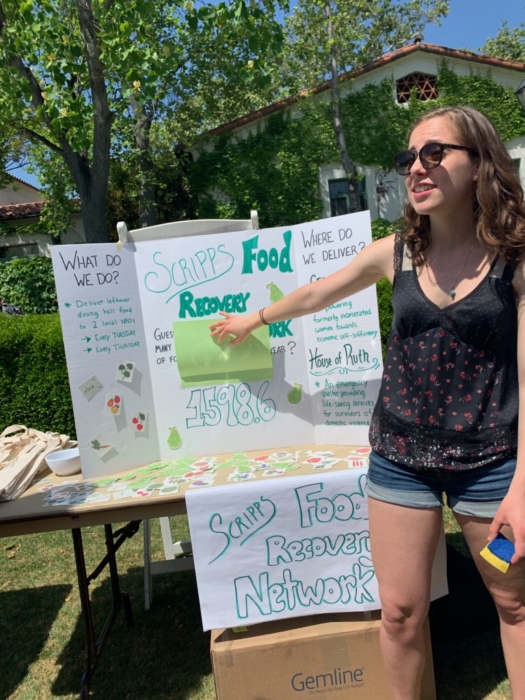By Josie Winslow ’21
Nearly 40 percent of America’s food supply ends up in the garbage. In just one year, 133 billion pounds of food are tossed into landfills, increasing methane production and costing the nation $162 billion. With 11 percent of the U.S. population struggling with food insecurity, activists across the nation are working to bring quality food to the communities that need it—not to the landfill. The members of the Scripps Food Recovery Network (FRN), along with the many Food Recovery Network chapters across the nation, do exactly this, working diligently to raise awareness about food waste and to reallocate food to communities in need.

Under Butts’s leadership, Scripps FRN has grown from a small volunteer organization to a thriving community that hosts club meetings and dinners in addition to running the food delivery program. Through these gatherings, students also plan fundraising strategies and cross-campus initiatives. Nevertheless, Butts aims to do more: “This is a broader issue with multiple facets that we can delve into, so I feel like we need to have even more club meetings. I try to brainstorm other ideas to increase community involvement. We make merchandise, stickers, and tote bags, and through that we’ve raised participation and awareness,” she says.
To that end, this past April, during Earth Week, the Scripps FRN posted “compost guardians” at the dining hall to educate the campus community about the amount of food waste being discarded at every meal and to encourage diners to compost their leftovers; the results were astounding. “We established a baseline for food waste over the course of a week,” explains Butts. “Garrick calculated the amount of post-consumer compost and the number of people eating dinner each evening. The numbers were huge—there was almost two-thirds of a pound of waste per person. But the next week, during Earth Week, when we really tried to heighten awareness of this issue, there was a drastic drop. Waste didn’t exceed one tenth of a pound of food per person!”
“Getting to know the dining hall staff has been really nice,” continues Butts. “Connecting the different worlds that exist at Scripps is incredibly important to becoming more sustainable. This type of interdepartmental, cross-facility, and student-staff work is essential.”

